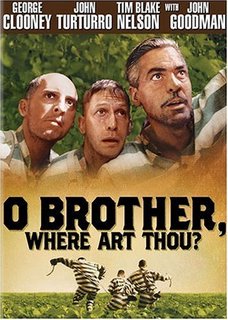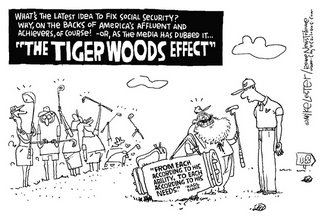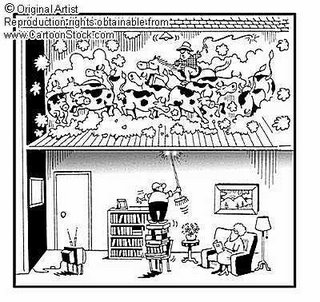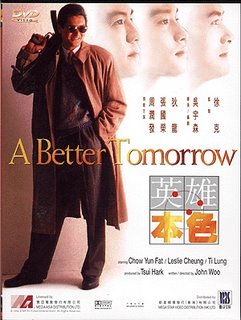41st Anniversary Special
David Marshall
The late ex-chief minister spoke frankly about Singapore in 1994; it's youths, the press, rapid changes, good and bad that forms part of our history. A year later Marshall passed away.
Aug 8, 2006
David Marshall was interviewed by media commentator, lawyer and blogger, Dharmendra Yadav, who reproduced the following in his website http://thinkhappiness.blogspot.com/
Meeting David Marshall inn 1994
Aug 8, 2006
Celebrating National Day
First, happy independence to my fellow Singaporeans!
In the past year, some of independent Singapore's founding fathers have left us. As we look forward to a fulfilling future, we must not forget the courage and selflessness of such past generations of Singaporeans.
In this respect, many years ago, I made a promise to David Marshall, the first Chief Minister of Singapore and one of Singapore's finest legal minds.
The promise was to publish in full an interview, which I had with him on 5 May 1994 at the offices of Singapore law firm, Drew & Napier.
Today, about 12 years after the interview and as Singaporeans celebrate 41 years of independence, I am pleased to make public this interview in full and keep a promise made.
This interview was part of an assignment for my college newsletter, which I completed with two others. An edited version of this interview was published in my college newsletter that same year.
He died soon after in 1995. I felt privileged to have met David Marshall in his lifetime. It was a dream come true since, from the age of 12, I had always wanted to meet him.
He remains my inspiration in my law career. When I met him, I also returned having learnt the importance of doing something else - giving to the community.
I hope reading his words will inspire you similarly!
Dharmendra Yadev
Dharmendra: In the past, when you were chief minister, youths played a politically-active role. How has the role of youths changed as compared to the past?
Marshall: The role of youths! Ha!
In my time, I tried to educate our people in an understanding of the dignity of human life and their right as fellow human beings, and youth was not only interested but excited about what I consider things that matter.
Things of the spirit; the development of a human being to his true potential in accordance with his own personal genius in the context of equal rights of others.
Today, youth is interested in getting paper qualification and, as soon as possible, shoveling gold into their bank accounts. It's a different world, even the law.
I am a consultant here [Drew & Napier]. When I left in '78, there were three partners - it was supposed to be a big firm; two assistants - we were a big firm; 17 staff. This office has four floors. They think that it is a waste of time to use the lift so we have an internal staircase. We have more than 90 lawyers, more than 200 secretaries and I don't know how many staff.
The law is no longer a vocation, it is a business. Everything is geared to business!
Of course, there is this pragmatic development of our country. Ah, our rising expectations of a pragmatic character! It is a fantastic and almost a miraculous development in my lifetime.
When I was Chief Minister, there were men dying of starvation and because of 'beri-beri'. I took my PA [personal assistant] and an Inspector of Police for night at midnight. For two hours, we toured Singapore and we estimated there were two ten thousand men sleeping on the pavements. No homes.
Today - no unemployment, no homeless. I started this business of building homes for our people. Compare the puny work I achieved and the fantastic HDB homes that are available today for our people. I am deeply impressed and I take off my hat to this very able honest government. Dedicated!
But I am seen as a critic and I am a critic.
I am frankly terrified by this massive control of the mass media, the press, the radio, television, antennae, [and] public meetings. You can't write a letter to the Straits Times; if there is a shadow of criticism, it's not published. And the Chinese press follows suit. It's a very dangerous position because experience proves that no one group of human beings has got all the wisdom in the world.
I mean… well, two of you are Chinese and one Indian [Ed: actually, the interviewers were one Chinese, one Jew and one Indian]. I don't know much about Indian history but look at China. You had Confucian authoritarianism for more than 2500 years. What happened to China? She was a fossil. She had to reinvigorate herself with the Western ideology of communism. Another authoritarian ideology! And what was the result?
There must have been a million decent people who were transformed into vipers, vicious obscene vipers. I'm afraid of this control of the mass media.
And are youths the miasma of apathetic subservience to authority? But you say to yourselves, "Well, you know, what do we seek in life? We seek a rice bowl, full!"
It is full and overflowing, in fact. They serve you your rice in a jade bowl with golden chopsticks; not that it makes much difference to the taste of the rice. But you're empty!
You've got technocratic skills and you are seeking more but internally you are empty. Money is your acid test of success.
I've got nothing against money. I'd like to have money myself! I'd like to have a house and a garden and dogs and a car and a chauffeur but, look, I've got a flat. I've got a swimming pool attached to the flat. I've even got a car but I use taxis. I have a dignified way of life without being wealthy.
I don't see the necessity of owning a Mercedes-Benz and a swimming pool and a couple of mistresses. I think we've got our values all wrong.
You know $96,000 a month for a Prime Minister and $60,000 a month for a minister. What the hell do you do with all that money? You can't eat it! What do you do with it? Your children don't need all that money.
My children have had the best of education. In fact, I'm very proud of them. One of them is a senior registrar to two major hospitals in Oxford. Another of them is a consultant in European law to the Securities and Investment Board in the United Kingdom. They've had their education. There are no complaints.
I never earned $60,000 a month or $90,000 a month. When I was Chief Minister, I earned $8,000 a month. Look, what is happening today is we are encouraged to and are becoming worshippers of the Golden Cart.
We have lost sight of the joy and excitement of public service, helping our fellow men. The joy and excitement of seeking and understanding of the joy of the miracle of the living the duty and the grandeur. We have lost taste for heroic action in the service of our people.
We have become good bourgeois seeking comfort, security. It's like seeking a crystal coffin and being fed by intravenous injections through pipes in the crystal coffin; crystal coffins stuck with certificates of your pragmatic abilities.
What has changed?
The self-confidence of our people has grown immensely, and that is good to see. Our pragmatic abilities have grown magnificently, and that is good to see. Very good to see!
You are very able. You're ambitious, and the government has heroic plans for the future. It hasn't finished.
I take off my hat to the pragmatic ability of our government but there is no soul in our conduct. It is a difficult thing to speak of because it is difficult to put in a computer, and the youth of Singapore is accustomed to computer fault. There is no longer the intellectual ferment, the passionate argument for a better civilisation. The emphasis on the rice bowl!
Tell me I'm wrong, come on.
Dharmendra: That PAP government has indeed done a great deal for Singapore. However, there is an increasing degree of discontent growing amongst our youths against them. Why do you think this is happening?
Marshall: Our lives are empty. We don't understand the joy of living is not in the gold coins. It is not in the bank account. The joy of living is in human relations. We are not in appreciation of this miracle of life.
We are giving a lop-sided view, an unfairness to the government! We come out of a morass of imperial subjugation where people were dying of starvation and now?
You know, when I won a case once years ago, I was presented with a lovely porcelain Buddha with a big flowing belly and ears that reached to his shoulders and a chubby face.
I said to my client, "Look, you Chinese got a real feeling for aesthetics. How can you worship something so obscene?"
He said, "Mr Marshall, try and understand. China is a land of starvation where millions of people die for lack of food, and to be able to eat that much, to be that fat, that is heaven!"
Now, that is the attitude of our government: to be able to eat that much, that is heaven and you should be content.
So are youths not content? They are not anti. Our youths frankly, very honestly respect the pragmatic achievements of the government, and I'm grateful, but they feel empty.
There isn't this joy of living which youth expects and youth needs - to learn the joy of living. How do you teach it?
I think you teach it through respect for the individual. That's our tragedy. If you want to put it in a nutshell, our tragedy is that we emphasise the primacy of society as against respect for the individual. Mind you, both are right.
I mean both sides have the liberty. Of course, there should be respect for the needs of society over the right of the individual but you must respect the individual too in seeking the expression of the needs of society. Here, we have no respect for the individual.
Cane them! Hang them! There are more than a hundred queuing up to be hanged, you know that?
[Minister For Law] Jayakumar said, "I have plugged the loop-hole whereby they could escape being hanged and just have twenty years of imprisonment!"
Oh, wacko the ducks - you need a monument!
The joy of hanging people; flogging them, every stroke must break the skin. I don't like it. I don't believe it is a deterrent. I see no proof. Look, it seems to me logic! If every year we have more death sentences, how can you say death sentence is a deterrent? If it were, there should be less death sentences.
But you know I'm in a minority and my father had one saying which I'd like you to publish. It is a beauty. He was a true democratic heart although he didn't know it.
He used to say, "David, if ten men tell you your head is not on your shoulders, shake it and make sure. Don't accept it. Just shake it and make sure!"
Well, I've shaken my head again and again and again and I still think I'm right. I know I'm in the dog-house.
The government doesn't see I do respect them immensely. They don't see I'm a genuine friend. They only see me as a critic and to be a critic is to be an enemy who must be erased and destroyed. There is no such thing as an honest critic to the PAP. It's a blasphemy to criticise the emperor, spoilt son of heaven.
[Lee] Kuan Yew says you mustn't lampoon a Chinese gentleman. Oh, dear me! Ya, what happened? What happened to China?
In Europe, they institutionalised the court jester and the court jester had total immunity against any result from his public criticism of the kings and emperors and the courtyard. Open public criticism - that was his job! They tried to laugh it off but at least there was one person to prick the bubble of their overgrown egoism.
And which civilisation has progressed better for the development of humanity? The Western civilisation or the Chinese civilisation?
You talk of Asian values. I only know two Asian values and, I wish someone would really pinpoint instead of pontificating ponderously in humbug and hypocrisy.
Family values - I think we have more family cohesion in Asia than in Europe; more family warmth and I like that. I accept that there is a greater tradition of family warmth and family cohesion.
Two, we have a greater passion for education. My secretary - I asked her once what her background is. She said her mother is a washer-woman and, here is this lovely secretary doing a damn good job. She was educated. How her mother could save enough to give her the education?
So these are the only two values I know. Somebody tell me what other values that are Asian, which everybody talks and nobody mentions the exact parameters.
And you know we use this concept of family cohesion to place on our youths the burden of caring for aging and ailing parents and grand-parents.
The young have got their own lives to make. To carry in your own homes aging irritable ailing parents and grandparents can destroy the family life of the young.
But then, the alternative is for the government to pour so much mountains of gold into building homes for the aged. That's sacrilege - gold is to be gathered and not to be spent.
I want to see more crèches, more homes for the aged.
Our Prime Minister [Goh Chok Tong] talks about gracious living. Where is the gracious living?
So I am a bad boy, I'm ostracised. The Straits Times makes slimy remarks about me.
The [press are] running dogs of the PAP.
Dharmendra: What would you tell youths who intend to pursue a career in law?
Marshall: Try and understand that the law is a vocation and not a business. Respect your client irrespective of the fees. I used to charge $1 for a murder case if he was Malay because he had no money. I used to charge $1 to trade unions; all Malay unions, I charged $1 a year. And the $1 is simply because, if you do it for nothing, you are not liable in negligence whereas $1 makes a contract and, if you are negligent, they can sue you.
I'd like them to also understand that justice is a meld of law and humanity. Law and humanity; decency in concepts; if we administer law by the soulless logic of the computer, we aren't on our road to progress.
You're too young but ask your parents - the Japanese times. Their draconian approach to anti-social activities. Ask your parents how they welcomed the returning British soldiers in 1945.
I was stunned when I heard about it; that we a colonial people, a subject people, should welcome rapturously the armed forces of Imperial power. How was that possible?
I learnt that they had a sense of relief to be back in the ambience of British justice; out of darkness, out of the draconian attitudes of the occupying power.
If you want to make money as a lawyer, you can. I see marble palaces. My juniors, ha! Marble palaces, swimming pools, Mercedes-Benz! Oh, bravo!
They work till nine o'clock at night. I don't know how their children survive. They work very hard, they make a lot of money. Yes, it's true.
If you are going for corporate law, insurance law and the non-litigant aspects of law, you can make a lot of money.
If you're a particularly good litigant - our litigation lawyers in civil cases - we've got some outstanding local lawyers. Yes, you can make a lot of money.
Don't go in for crime. The Criminal Bar is a very frustrating Bar today.
Dharmendra: You have fought many cases. You have some nrilliant cases that you managed to sweep the jury off their feet in words?
Marshall: And I'm according to Lee Kuan Yew in Parliament when he sought the abolition of the jury, "David Marshall is responsible for 200 murderers walking freely the streets of Singapore."
I'm proud of that. I told him to put it on my tomb. If there are 200 people walking freely the streets of Singapore, it means they are contributing to Singapore. Singapore would have been poorer by hanging them. I have no compulsion.
Look, the purpose of criminal law is really two-fold: as a deterrent and as a catharsis of society to express its vengeance. If you escape it, you're no harm to society so long as you maintain a good police force and so long as you maintain a certain human justice in understanding.
For me, the punishment must not fit the crime, the punishment must fit the criminal and the punishment must fit the needs of society.
Recently, I accepted a brief - a Sikh sentenced to death. He was 21 when he was arrested. His appeal came on five years later. It was dismissed.
But during those five years, he studied religious knowledge. He got distinction in the New Testament and he became a Christian.
He's now 26 or 27. He's going to be hanged. I like that man. I think he can be a real asset. He is a delightful chap.
I asked his family, his elder brother. I said, "You Sikhs are really close in the family. How did you family take his becoming a Christian?"
He said, "What could we do? The poor man is going to be hanged. How can we be angry?"
There are more than a hundred people queuing to be hanged. There are decent people there.
Looks, there's a lovely phrase - I forgot who coined it - who said, "There but for the grace of God know I, I know no man who stood totally spotless that he can say I committed no anti-social act."
And so in our criminal code, if some escaped, that's an asset.
I'm reminded of a lovely story of Sir Walter Raleigh. On the scaffold, he went up and tested the axe with his thumb and turning to the master executioner, he said, "This is the surest cure for all diseases. If you want to eliminate all crime, you got to eliminate all humanity."
I have absolutely no bad conscience about the men I have helped escape the gallows and escape the prison. I'm grateful for the opportunity to have done that.
I say this, perhaps in conclusion, we have a judiciary of tremendous integrity. I've been practising since 1948, except for three and a half years, there isn't a single case of financial corruption, neither in the High Court nor the magistrates' courts. It's wonderful to practice in the ambience of total integrity.
Dharmendra: HAVE YOU EVER REGRETTED BECOMING A LAWYER?
Marshall: No! I think it was a guardian angel that brought me there.
I suppose you know, you must have read that I wanted to be a psychiatrist. First, when I was young, I wanted to be a doctor. I thought medicine was the greatest profession in the world - helping heal and comfort the sick and the helpless. And as I grew into adolescence, I wanted to be a psychiatrist. Not to practice but to do research: why the goodwill of the young?
All youths no matter what race, no matter what country, goodwill flows from their hearts. They want to help the world, but by the time you reach 30, your goodwill like good wine turns to vinegar - the vinegar of crapped egoism.
I wanted to study the wise and whether these could be some antidote for this unhappy transformation of the goodwill of youths to the crapped egoism but I didn't have the money. Fortunately!
I don't know if I could have achieved anything that vast. I don't know whether I have the intellectual ability to do first-class research into the mind and emotions of man.
I fell, by accident, into the right career at the right time and it has been wonderful.
Regret? I'm full of gratitude for having become a lawyer and, especially, a criminal lawyer; for having helped thousands of people terrified, helpless before the silly forces of society. They've looked into me as their protector. I have no regrets at all for having helped them; humanity, if you can understand this.
If you ever become a criminal lawyer, never look down upon your client. He may be a murderer or he may be a thief; he is a fellow human being. You must try and respect your client no matter what he has done. It is very important in your own self-respect in your work, and to help who is helpless in seeking help.
Look, at the age of 86, I can say in all earnestness, the thing that matters most in bringing human satisfaction is human relations. To be able to care for your fellow human beings, to be able to give! Never mind about receiving.
Even today, my friends say, "Oh, David, stop it! Why do you have to keep making public noises that annoy the government? Live in dignity and retirement. They'll respect you and you'll have the honours."
Ha, honours! I want to fight till I'm dead!
What matters most in life is the right of human beings to live fully in the context of their own genius. In one word, perhaps, to fight for human justice. I once said humanity's cry for human justice reverberates down the corridors of the centuries, and it is still crying for human justice.
Dharmendra: An unforgettable moment in St. Andrew's School?
Marshall: I was coming. That was the old building and I was coming along the corridor carrying a set of books. It must have been morning and, outside my classroom, there was a Chinese boy much slimmer than you [Dharmendra] with his back to the wall - absolutely pale, full of fear.
And in front of him was my friend, an American boy - same student, same class - and dancing an Indian jig saying, "Ching! Ching! Chakama!"
Without the slightest warning, I dropped my books and lunged at him [the American boy].
Dharmendra: Do you have any message in general?
Marshall: Recognise there is a lot of satisfaction in public service, foreign service, judicial service. A great deal of satisfaction in public service, even honorary public service in committees.
[If] you are totally engrossed in self-promotion, at the end of the day, you'll find it's dead seafood.
Try and give up yourselves to others.
I am so alien to this worship of the Golden Cart and the draconian attitude; the brutal attitude towards our fellow citizens. Here I ask people and, no doubt, if I ask you, "We're all in favour so long as it's not me having my bottoms cut! Yes, whip 'em!"
Try to put yourself in the other man's shoes.
And, of course, what have I got to say?
You, the young - you've got a fantastic, absolutely fantastic potential before you; economic expansion, heroic plans that the government has for the future not only the present. You are so lucky! No unemployment! Great potential even beyond your capacity to fulfill.
It's an exciting country, Singapore. It's a lovely country. And you have to make your own space for your own spiritual and intellectual needs and have the courage. Have the courage to serve your fellow men with integrity.
I'll put it in one nutshell: have the courage to live, don't be afraid!
You know, I'm told I'm fool-hardy and always criticising, although I have such a gracious life. But fool-hardy or no, this is me; I am prepared to take what you give.








 Sometimes, someone who daydreams is seeking to fulfill a dream or hope in their mind. While it may seem a useless human behavioral glitch or fault, it can actually be quite constructive, especially for those who are in a creative career.
Sometimes, someone who daydreams is seeking to fulfill a dream or hope in their mind. While it may seem a useless human behavioral glitch or fault, it can actually be quite constructive, especially for those who are in a creative career.







 Such results have inspired thousands of people to put up with constant hunger in the hope of living longer, healthier lives. They have also led to a search for drugs that mimic the effects of calorie restriction without the pain of going on an actual diet.
Such results have inspired thousands of people to put up with constant hunger in the hope of living longer, healthier lives. They have also led to a search for drugs that mimic the effects of calorie restriction without the pain of going on an actual diet. Eating at such stalls is inexpensive (by Korean standards). Typically a skewer of anything is KRW1,000 - KRW2,000. The price for a plate of teokbokgi varies, depending on what you load it with but generally it shouldn't cost more than KRW2,000 - KRW3,000.
Eating at such stalls is inexpensive (by Korean standards). Typically a skewer of anything is KRW1,000 - KRW2,000. The price for a plate of teokbokgi varies, depending on what you load it with but generally it shouldn't cost more than KRW2,000 - KRW3,000.  This is odeng, fish cake skewered into a sausage-like form. I actually enjoy the soup more!! The soup is made from turnips and anchovy stock and peppered liberally. Served in paper cups. Very nice on a cold night.
This is odeng, fish cake skewered into a sausage-like form. I actually enjoy the soup more!! The soup is made from turnips and anchovy stock and peppered liberally. Served in paper cups. Very nice on a cold night. Close-up of the flour-battered deep fried chicken fillet, smothered in sweet and spicy sauce. KRW2,000
Close-up of the flour-battered deep fried chicken fillet, smothered in sweet and spicy sauce. KRW2,000
 The more I observed, it seemed that only 4-room flats had their lift upgraded, but none so far 3-room flats.
The more I observed, it seemed that only 4-room flats had their lift upgraded, but none so far 3-room flats.


 One of his well-known part of the book is also found in the chapter "On Arranging Things".
One of his well-known part of the book is also found in the chapter "On Arranging Things". 



